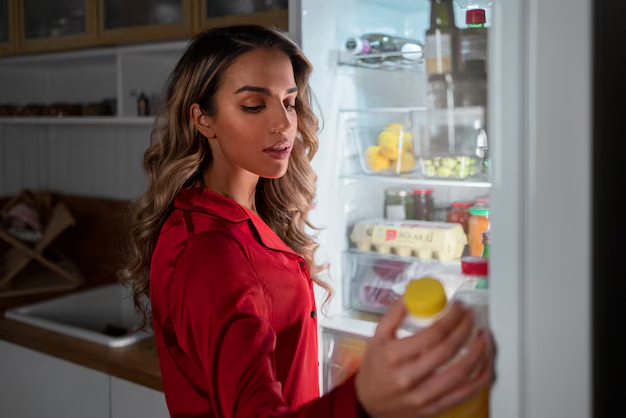Exploring Whether You Can Plug a Refrigerator Into a Power Strip
Refrigerators are essential household appliances, quietly ensuring our food remains fresh and safe. But when setting up a new kitchen or rearranging appliances, one might wonder whether it's safe—or even advisable—to plug a refrigerator into a power strip. This common question is vital for both safety and operational efficiency. Here, we'll dive into the considerations that need to be made, ensuring your home remains safe and your refrigerator functions optimally.
Understanding the Basics: Power Strips vs. Surge Protectors
Before addressing the main question, it's important to clarify the difference between power strips and surge protectors. While these terms are often used interchangeably, they serve different purposes.
Power Strips: These are primarily designed to provide multiple outlets from a single socket. They're essentially extension cords with multiple outlets, lacking protective features against electrical surges.
Surge Protectors: These devices include built-in features to protect your appliances from voltage spikes by either blocking or shorting to ground any unwanted voltages above a safe threshold.
Understanding these differences is critical because a power strip on its own doesn't guard against power surges.
Can You Plug a Refrigerator Into a Power Strip?
The short answer is generally no. Here's why powering your refrigerator through a power strip might not be ideal:
1. High Power Demand
Refrigerators have significant power needs. They require a higher amperage than many small appliances, especially during start-up, which can exceed 1000 watts. Power strips often can't handle this high power demand, potentially leading to overheating or, in worst-case scenarios, fires.
⚡ Key Takeaway
Avoid connecting heavy-duty appliances like refrigerators to power strips due to their high power consumption needs.
2. Potential for Overloading
Using a power strip increases the risk of overloading the circuit. Refrigerators demand a constant power supply, and adding more devices to the same strip can cause the circuit breaker to trip or, worse, not function correctly when overloaded.
3. Lack of Surge Protection
Refrigerators are vulnerable during power surges, which can cause considerable damage to their compressor and other components. Standard power strips lack the surge protection features needed to safeguard against these occurrences.
🔌 Practical Tip
If you'll be adding other appliances besides your refrigerator onto the same circuit, consider investing in a dedicated circuit or using a high-quality surge protector instead.
Energy Efficiency Considerations
1. Impact on Energy Bills
Plugging a refrigerator into an inappropriate setup can lead to inefficiencies. A continuously working compressor due to improper voltage can lead to increased energy bills and may shorten the appliance's lifespan.
2. Proper Connection for Optimal Performance
Understanding the power needs of your refrigerator and ensuring it's plugged directly into a wall outlet ensures efficiency and safety, maximizing performance and reducing energy costs.
Safe Alternatives for Powering Your Refrigerator
Let's explore safe and efficient ways to ensure your refrigerator functions correctly:
Direct Wall Outlet Connection
Refrigerators should ideally be connected directly into a wall outlet. This setup guarantees they get the dedicated power supply required, reducing the risk of tripping circuits or encountering power-related issues.
Dedicated Circuit
For ultimate safety and efficiency, utilizing a dedicated circuit is recommended. This setup limits interference from other appliances that share the same circuit.
Surge Protectors
While a standard power strip isn't advisable, using a surge protector designed to handle large appliances can provide some peace of mind. These come equipped with higher capacity and safety features to guard against electrical spikes, safeguarding the refrigerator's electrical components.
Considerations for Other Kitchen Appliances
What About Other Appliances?
While the refrigerator is one key appliance to consider, similar guidelines apply to other kitchen essentials like microwaves, ovens, and dishwashers:
- Microwaves: Should also be connected to a wall outlet or a dedicated circuit due to high energy needs.
- Ovens and Dishwashers: Require specialized circuits due to stringent energy and safety regulations.
🤔 Good to Know
For safety, check appliance manuals or contact manufacturers to ensure proper electrical setups.
Special Situations: What If No Other Options Exist?
In scenarios where direct wall connections or dedicated circuits aren't available, perhaps due to spatial or structural limitations, consider these strategies:
- Consult a qualified electrician to evaluate your home's electrical setup.
- Explore restructuring the kitchen layout to accommodate dedicated circuits.
- Investigate power management tools that allow for safe and efficient plugging of essential appliances.
Refrigerator Care and Electrical Safety
Proper electrical setup is only one element of maintaining your refrigerator and ensuring household safety:
Routine Maintenance
Regularly inspect both the power cord and plug for wear. Damage here can lead to energy inefficiency and potential safety hazards.
Energy Efficiency Practices
- Keep the refrigerator fully stocked for optimal energy consumption.
- Regularly defrost (if necessary) to maintain compressor efficiency.
- Ensure seals are tight to prevent cold air leaking, conserving energy.
Visual Summary: Key Points to Remember
Here's a quick visual summary of essential points:
| ⚡ Safe Practices | 🔴 Avoid |
|---|---|
| Use a direct wall outlet | Plugging into power strips |
| Employ a dedicated circuit | Overloading circuits |
| Use surge protectors | Neglecting maintenance |
Balancing Safety and Practicality
As we wrap up, it's clear that while convenience may tempt you to use a power strip for heavy-duty appliances like refrigerators, the potential risks are considerable. Carefully evaluating your electrical setup can safeguard your home and ensure your refrigerator continues to operate efficiently. Seeking expertise from home electrical professionals can offer invaluable insights tailored to your unique setup.
By prioritizing energy use and efficiency, you're not just supporting your appliances—you're investing in the safety and longevity of your home. Remember, every small decision matters in creating a safer, more energy-efficient household.

